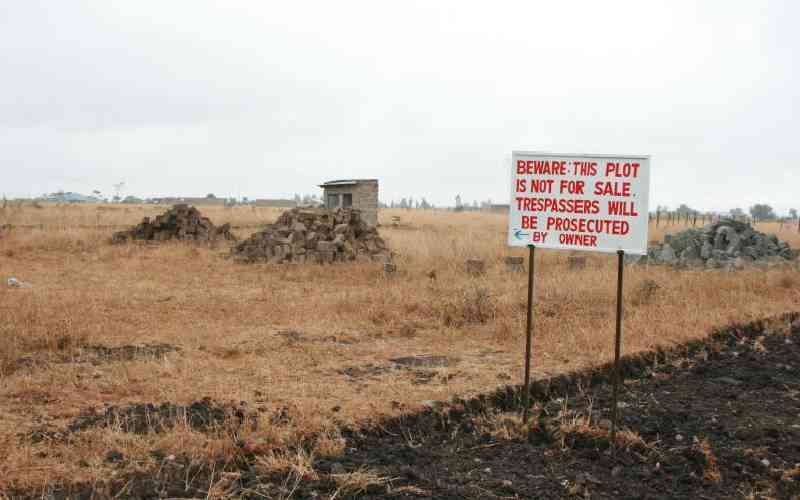Land was at the centre of reform when Kenya adopted the 2010 Constitution. Title deeds, long elusive and contested, were meant to symbolise dignity, justice, and economic empowerment. For many families, finally holding that small piece of paper felt like closing the door on decades of uncertainty. Unfortunately, the land situation remains a split decision 15 years later, oscillating between hope and heartbreak.
For organisations like FIDA-Kenya, which represent indigent women and children in land and inheritance cases, the Constitution was very promising on the land question. It outlawed discrimination in property ownership, created the National Land Commission, and recognised equal rights for women. Millions of titles have since been issued, enabling families to access credit, secure their homes, and pass property across generations. At its best, the title deed has given Kenyans confidence, which is tangible proof of ownership and a shield against arbitrary eviction.
However, many families who received title deeds now face new conflicts. Fraudulent allocations, double registrations, and political interference have created fresh disputes. In rural and community lands, titles have sometimes facilitated dispossession rather than protection. For women, the promise of equality often clashes with cultural norms. Widows and daughters are still denied inheritance despite explicit constitutional provisions.
Follow The Standard
channel
on WhatsApp
The reasons for this unfortunate turn of events may be linked to systemic institutional failures and corruption involving several actors rather than one single group. The blame is shared between corrupt government officials (past and present), political leaders, cartels, and weak enforcement institutions. Political interference has been the most significant driver, but institutional corruption in the land docket and weak accountability mechanisms have made the system prone to fraud and disputes.
Even worse, title deeds have become weapons of vulnerability. Each year, banks auction off property worth billions of shillings, much of which is family land used as collateral. Rural households lost ancestral land after failed agribusiness projects, while urban families continue to face evictions from mortgaged homes.
This situation is not just a matter of financial literacy; it is also a matter of personal responsibility. It is the failure of institutions, specifically banks that lend without realistically assessing risks, regulators that fail to enforce responsible lending practices, and government agencies that do little to protect citizens from predatory practices. By leaving families exposed to auctioneers, the same institutions meant to safeguard property rights are turning land ownership into another path to dispossession.
Although the Constitution provided a framework for addressing the land question, its implementation remains shaky. The corruption in land registries, slow redress of historical injustices, and weak enforcement of women’s rights still undermine progress. However, the Constitution has also inspired hope. Courts have increasingly cited the Constitution to protect women and other vulnerable groups from dispossession. Civil society has used the same Constitution to challenge illegal evictions and defend community rights. So, the Constitution may not solve land injustices overnight, but it has armed vulnerable citizens with a voice and a legal weapon.
Suppose the title deed remains a blessing to the vulnerable in society; in that case, Kenya must clean up land registries and insulate them from corruption by political elites and cartels. There is an additional need to ensure that women and marginalised groups are aware of and assert their rights. They also need to utilise community-driven mediation and alternative dispute resolution mechanisms to alleviate the ever-present court backlogs. The government must also address historical land injustices with courage and honesty that the citizens can believe in.
Fifteen years later, the land question remains a pressing issue. Unless the government cleans up registries, prosecutes corruption, and settles historical injustices, land reforms will remain empty promises. Kenyans deserve leaders with the courage to turn land from a tool of betrayal into a guarantee of dignity, justice, and security.
Follow The Standard
channel
on WhatsApp
By Brenda Yambo


